
1/ 😁Thread -- About Me -- 5 year update😁
It's been a busy 24 hours since @joerogan's podcast dropped where @CarnivoreMD discussed our work (mega thx, Paul!). There's been a surge of new followers, so I figured it was high time to do an update for those just tuning in...
It's been a busy 24 hours since @joerogan's podcast dropped where @CarnivoreMD discussed our work (mega thx, Paul!). There's been a surge of new followers, so I figured it was high time to do an update for those just tuning in...
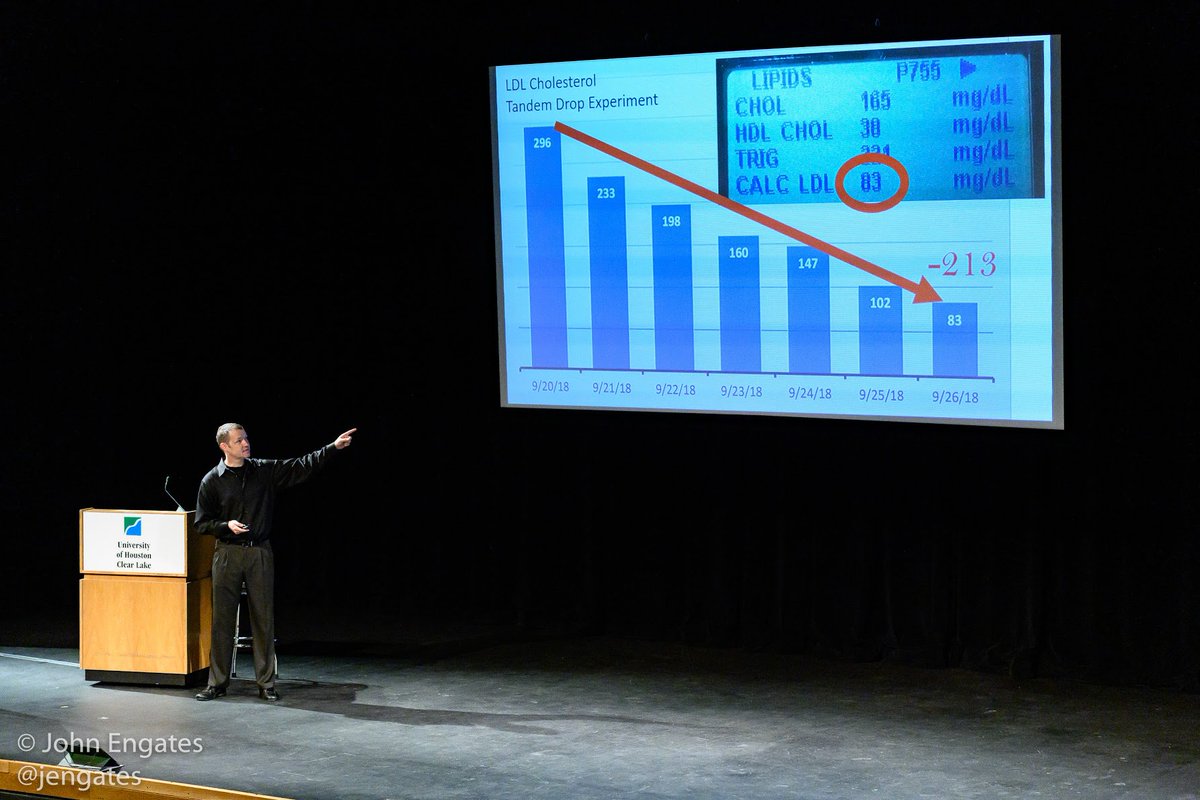
2/ I'm a senior software engineer and systems architect having developed a variety of platforms over my career.
Five years ago next month I saw my cholesterol levels skyrocket on a ketogenic diet and was extremely interested as to the mechanisms behind it...
Five years ago next month I saw my cholesterol levels skyrocket on a ketogenic diet and was extremely interested as to the mechanisms behind it...
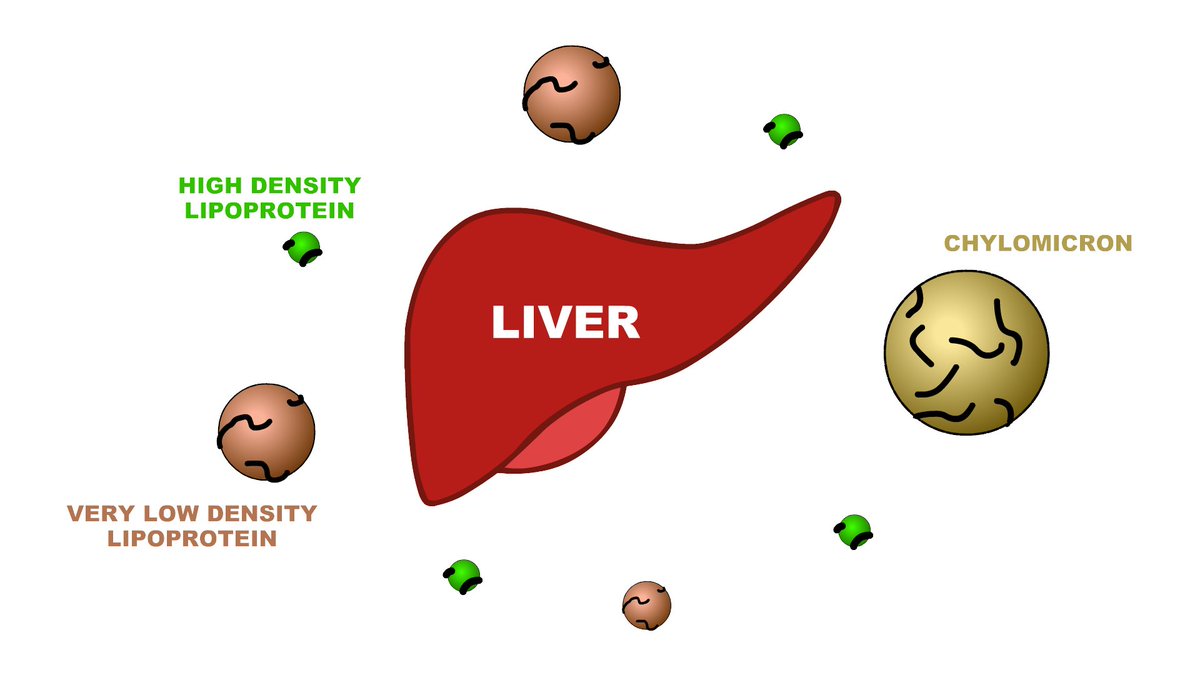
3/ I began learning everything I could about Lipidology and the system that moves #cholesterol around in our body. To my surprise, it has many structural things in common with a network (a very advanced one, mind you), but soon I was manipulating my own lipid levels easily.
4/ In fact, the first major data I was gathering in 2017 revolved around the Inversion Pattern where (unintuitively), I demonstrated the three day average of dietary fat would inversely impact LDL-C levels when fat-adapted. 
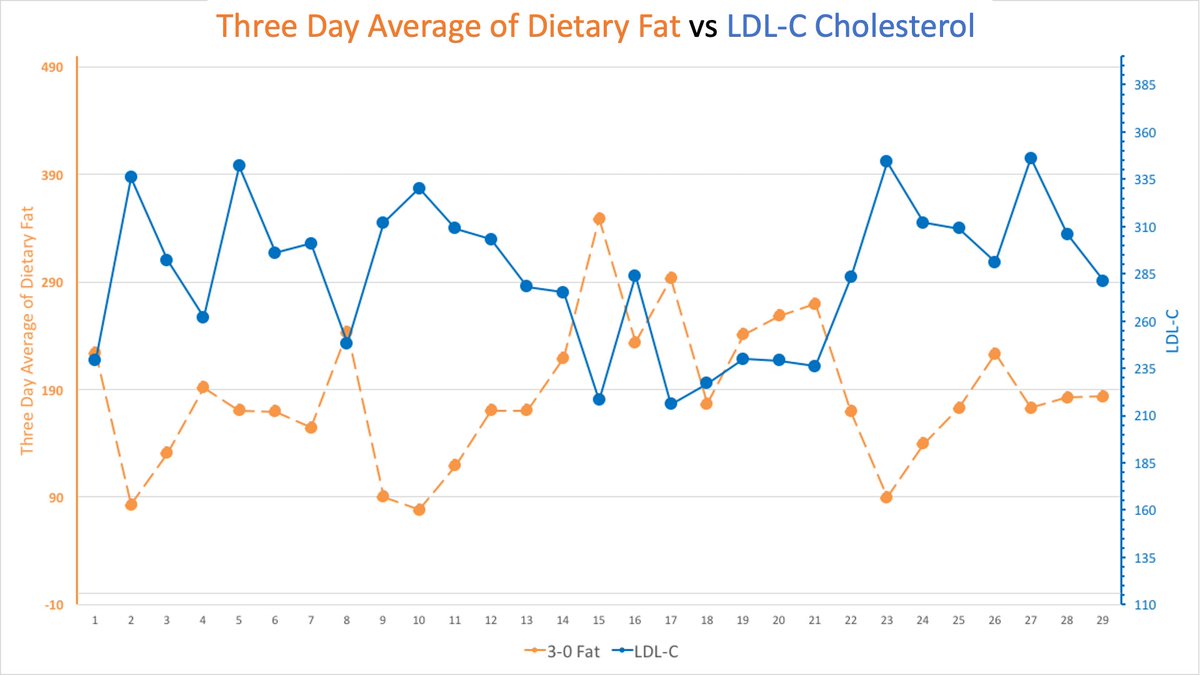
5/ Long story short, this has ultimately led to development of what I call the #LipidEnergyModel which might help to explain this phenomenon of higher cholesterol when fat adapted, particularly if metabolically healthy. 
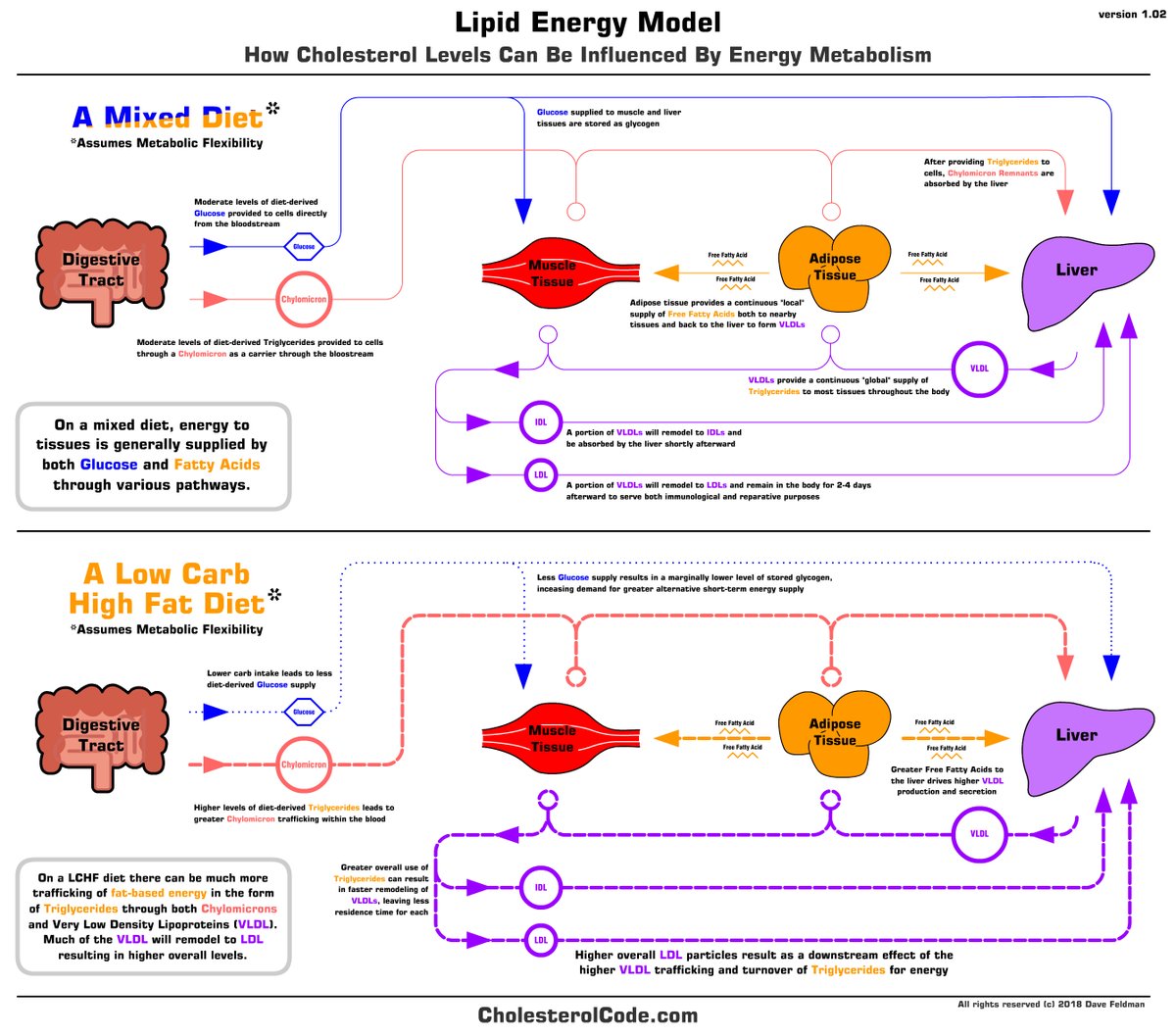
6/ I recently presented this to @Stanford in the following talk, though it does get a little technical:
And to be sure, it's a work in progress. We're putting together the paper right now.
And to be sure, it's a work in progress. We're putting together the paper right now.
7/ If pressed for time, you might want to check out this five minute, highly simplified version:
8/ The #LipidEnergyModel led to recognition of a common "triad" of (1) high #LDL Cholesterol (LDL-C), (2) high #HDL Cholesterol (HDL-C), and (3) low Triglycerides (TG)
This pattern doesn't apply to everyone low carb, but it does seem proportionally more likely where healthy
This pattern doesn't apply to everyone low carb, but it does seem proportionally more likely where healthy
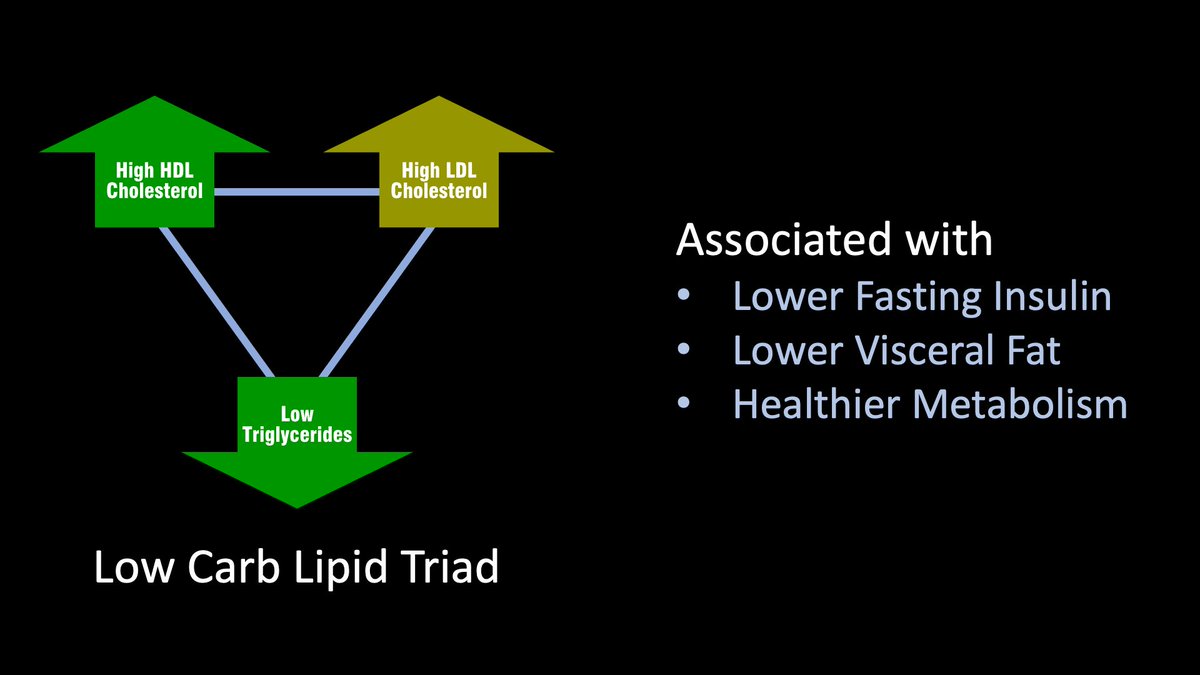
9/ Conversely, there's a pattern that is nearly the opposite known as "Atherogenic Dyslipidemia" with low HDL-C, high TG, high proportion of "small dense" LDL particles.
It associates with high cardiovascular disease risk and all cause mortality.
It associates with high cardiovascular disease risk and all cause mortality.
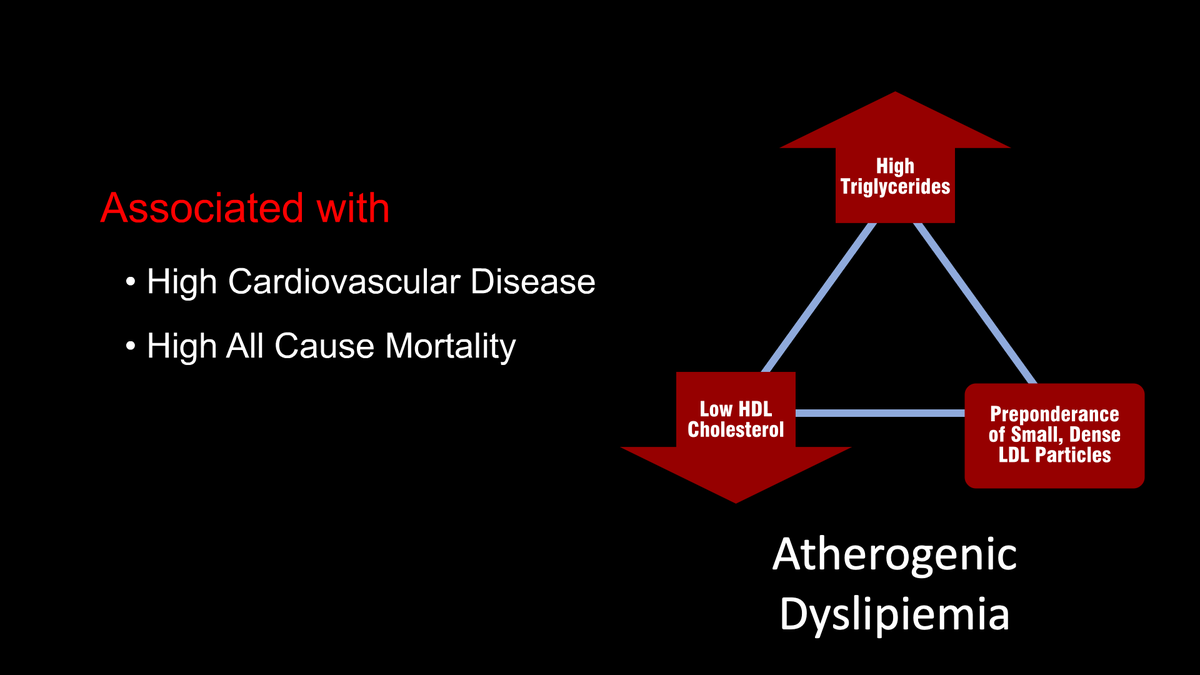
10/ You'll hear me talk about these two lipid profiles a lot because I think they are fundamental to our understanding of disease and how it impact lipid levels. 
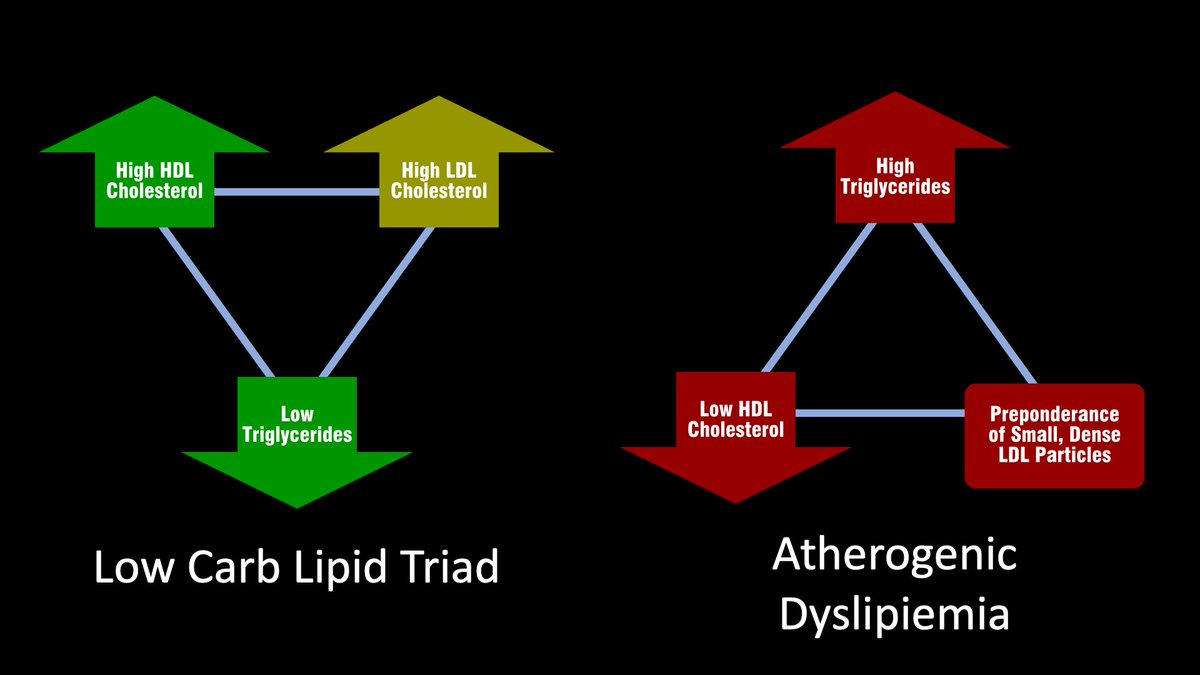
11/ Over time I recognized the spectrum of this triad would have one group at the far end of it, which I observationally called "Lean Mass Hyper-responders" (LMHRs) LDL≥200, HDL≥80, and TG≤70
This pattern crosses all genders, ethnicity and ages
This pattern crosses all genders, ethnicity and ages
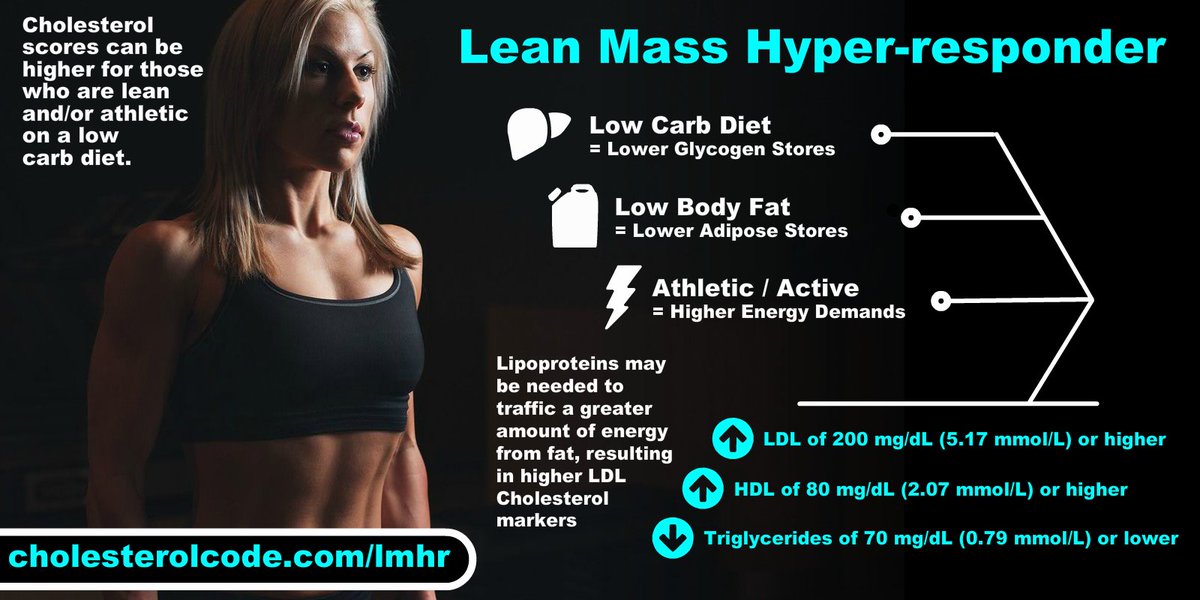
12/ And actually, this group tends to have some of the lowest cardiovascular risk markers overall, save the one of interest with LDL.
It's worth pointing out that we don't know how much or little these risk factors interact as this is very uncharted territory
It's worth pointing out that we don't know how much or little these risk factors interact as this is very uncharted territory
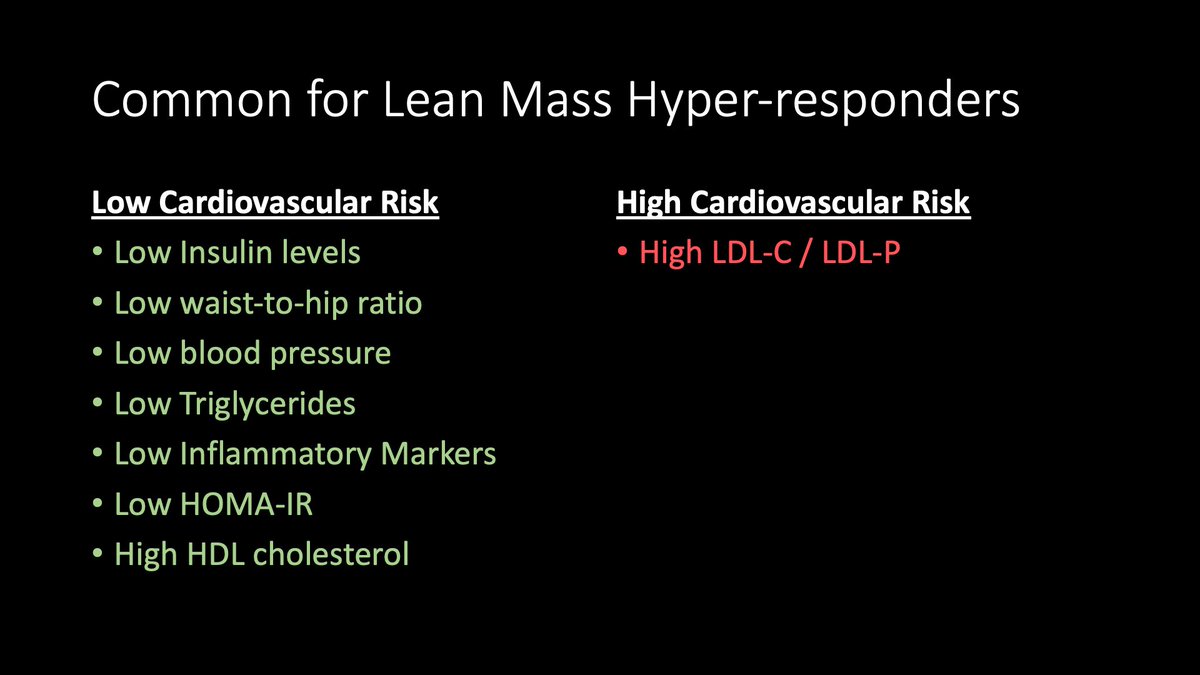
13/ Those with the triad, and particularly LMHRs, are understandably concerned about having higher total and LDL cholesterol. The vast majority of lipid professionals, cardio associations, etc recommend against this, full stop 
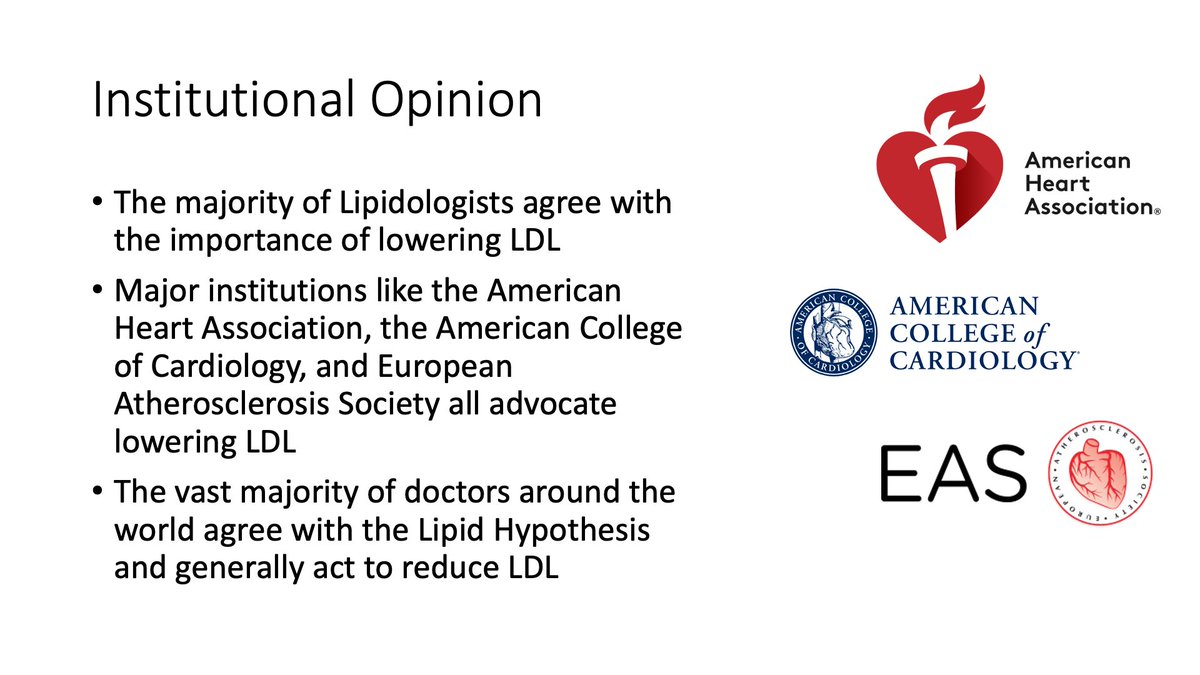
14/ While I often say I'm "cautiously optimistic" with regard to this triad as it relates to risk given the specific context of fat adaption, I'm being very explicit that it's an unknown. There are definitely bad reasons for high LDL and the two are not mutually exclusive.
15/ Moreover, I strongly advise everyone reading this to check out articles making the case for lowering LDL, don't just look at the skeptic's position.
My colleague, @DrNadolsky penned a good one at my request here: cholesterolcode.com/guest-post-the…
My colleague, @DrNadolsky penned a good one at my request here: cholesterolcode.com/guest-post-the…
16/ Here's my own presentation from last year at Keto Salt Lake regarding cholesterol and risk:
17/ All that said, while @DrNadolsky and I have differing hypotheses regarding risk in this context, we're thankfully teaming up with @DrRagnar to test it directly with a LMHR study.
Here's the pitch video -- although note it has changed from 5 years to 1
Here's the pitch video -- although note it has changed from 5 years to 1
18/ You can help us make this study a realty by showing your support here: citizensciencefoundation.org/campaigns/lean…
19/ Lastly, I have to add a big shout out to my good friend and collaborator, @siobhan_huggins, who both helps manage the CC site and specializes in the vastly complex, yet often lipid-related #ImmuneSystem.
One of her best articles to date: cholesterolcode.com/lipoprotein-po…
One of her best articles to date: cholesterolcode.com/lipoprotein-po…
20/ Feel free to visit the blog to learn more about our work: cholesterolcode.com
• • •
Missing some Tweet in this thread? You can try to
force a refresh




